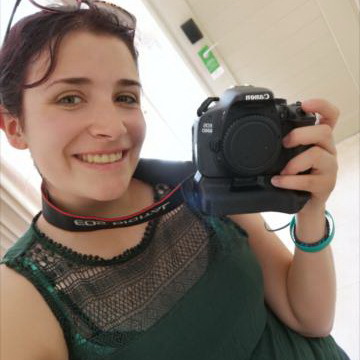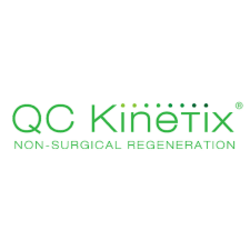It’s hard not to jump into conclusions when you or someone you love gets diagnosed with cancer. The next thing you know, you’re already scouring the Internet for every bit of information about the disease that you can find. The Internet is a pool of valuable information about cancer. Unfortunately, it also brings up a mound of myths and misconceptions that are repeated so often, some people are starting to take them for truth.
When it comes to cancer, it’s crucial to sort out facts from fiction. The wrong information can affect the way you respond or react to the disease, and may even put your life seriously in danger.
From survival rates to alternative cancer treatment, we’ll discuss and debunk some of the most common cancer myths and misconceptions today.
Myth 1: Cancer research has gotten us nowhere.
When you lose a loved one to cancer, it can feel as though we’ve made zero progress in the fight against this pernicious disease. However, anybody with the guts to declare that the decades-long war with cancer has been a complete failure is obviously misguided.
We’ve come a very long way from where we were forty years ago in terms of cancer prevention, screening, and treatment, resulting in a gradual increase in cancer survival rates year after year. A lot of advancements have also been made in dealing with the side effects of standard cancer treatments, specifically chemo, and radiation therapies, to improve patients’ quality of life while dealing with the illness.
Myth 2: A cancer diagnosis is a death sentence.
While it’s true that there is still no single definitive cure for cancer to this day, being diagnosed with the disease is not and has never been considered a death sentence. In fact, cancer death rates have dropped by 15% in the United States from 2007-2017. Also, there’s currently a 90% five-year survival rate from breast, thyroid, and prostate cancers.
There are many factors that influence the continuous decrease in cancer deaths, but early detection, treatment, and the range of treatment options currently available are cited as the major contributors.
Myth 3: Cancer is almost always genetic.
Just because no one in your family had cancer before does not mean you’re not at risk. Inversely, if someone in your family has or had cancer, it also does not follow that you’ll be diagnosed with the disease at some point in your life.
While it’s true that some forms of cancer have a genetic component, this is only true for about 10% of cancer diagnoses. The others are mostly caused by genetic mutations that are often triggered by environmental factors, lifestyle choices, and other – sometimes unknown – causes.
Myth 4: Cancer is contagious.
Family history may play a role or, to some extent, increase the odds of a person developing cancer, but you’re not going to catch the disease through contact with a patient.
Taking care of and living with someone who has cancer will not make you sick as well. The disease is not contagious. However, some viruses that lead to the development of cancer may be transmitted from person to person. An example is a human papilloma virus or HPV, which causes cervical cancer.
Myth 5: Cellphones, computers, and microwaves cause cancer.
People began linking cancer with radiation after reports came out that the many survivors of the Chernobyl incident and World War 2 atomic bombing developed cancer. The thing is, if it was indeed radiation that caused the disease, those people were exposed to very high levels of radiation.
Cellphones, computers, microwaves, and the many other devices that you use daily only emit low-frequency radio waves which isn’t enough to mutate genes and cause cancer.
Myth 6: Consuming sugar and sweeteners makes cancer worse.
This myth may have originated from a study that showed cancer cells consume more glucose than ordinary cells. Based on the findings, a lot of people concluded that sugar feeds cancer cells while reducing sugar intake will starve them and impede the development of the disease.
While it is recommended to limit sugar consumption for health reasons, there is no evidence that eating sweet or sugary food worsens cancer. All the cells in the body feed on glucose for energy, regardless of whether they’re cancerous or not.
Myth 7: Superfoods can cure cancer.
Blueberries, broccoli, garlic, beetroot, and green tea are well-known cancer-preventing superfoods. While these healthy food choices contain antioxidants that help the body get rid of toxins, they are not failsafe protection against cancer nor can they remove the disease from your system.
A healthy diet will make you feel better and more energized. Including fruits and vegetables in your daily meals contributes to a healthy lifestyle that can help you avoid obesity and diseases, including cancer.
Myth 8: Supportive care does not have a significant impact on cancer survival.
It’s no secret that most conventional cancer treatments come with stressful side effects. Patients who undergo chemotherapy usually complain of the pain, nausea, and fatigue that follow and sometimes endure for weeks after every appointment. These side effects drastically decrease the quality of life and are often the reason why there are cancer patients who opt to discontinue treatment.
The goal of supportive care is to prevent or relieve the physical, social, and psychological side effects of cancer treatments as early as possible. With supportive care, patients are able to withstand more aggressive chemotherapy regimens, thus improving their overall rate of survival.
Myth 9: Doctors don’t want their patients to try non-conventional cancer treatments.
A lot of patients avoid discussing alternative approaches to cancer treatment with their doctors, thinking that their medical team would only advise them against trying non-conventional treatments.
Some medical professionals may not be the biggest fan of natural and alternative or integrative medicine, but you should never be afraid to discuss your treatment plan with your doctors. Who knows, your oncologist may even recommend a complementary treatment that would work well with your chemo or radiation therapy.
CAM therapies like acupuncture, meditation, yoga, aromatherapy, and dietary supplements can do wonders for your well-being and help you manage cancer-related symptoms and side effects better. However, not all patients respond positively to these treatments. Before you try any of them, consult your doctor first.








